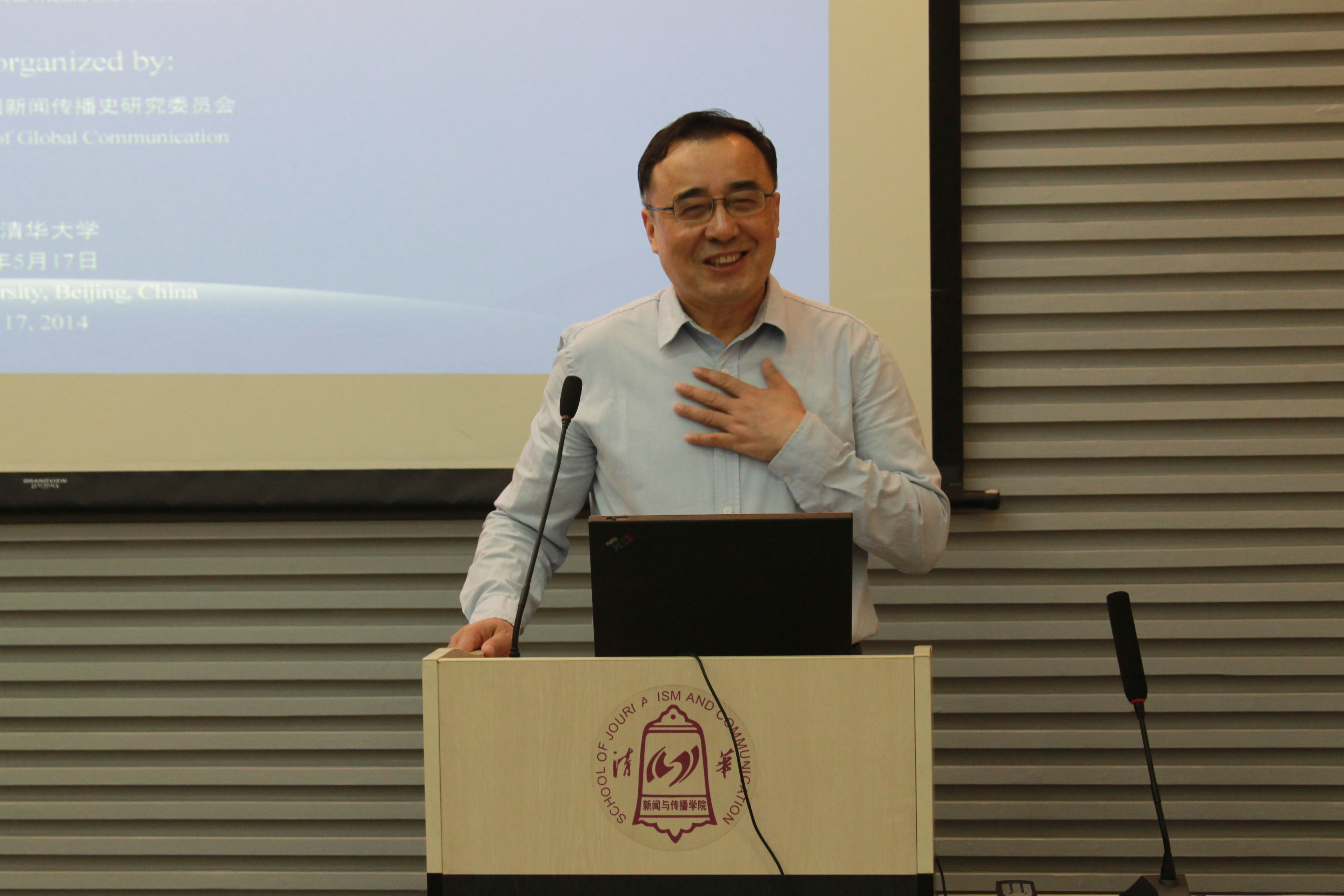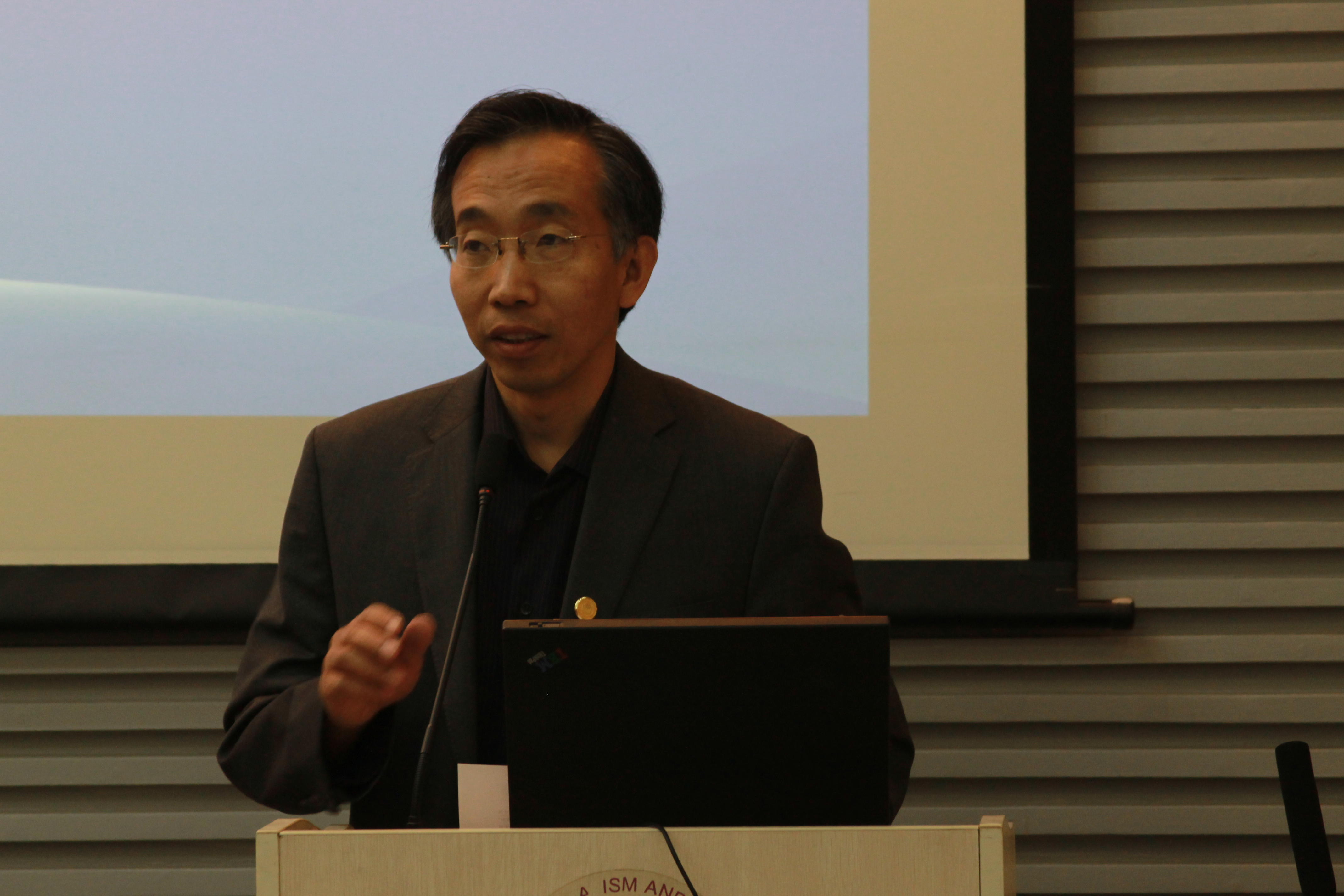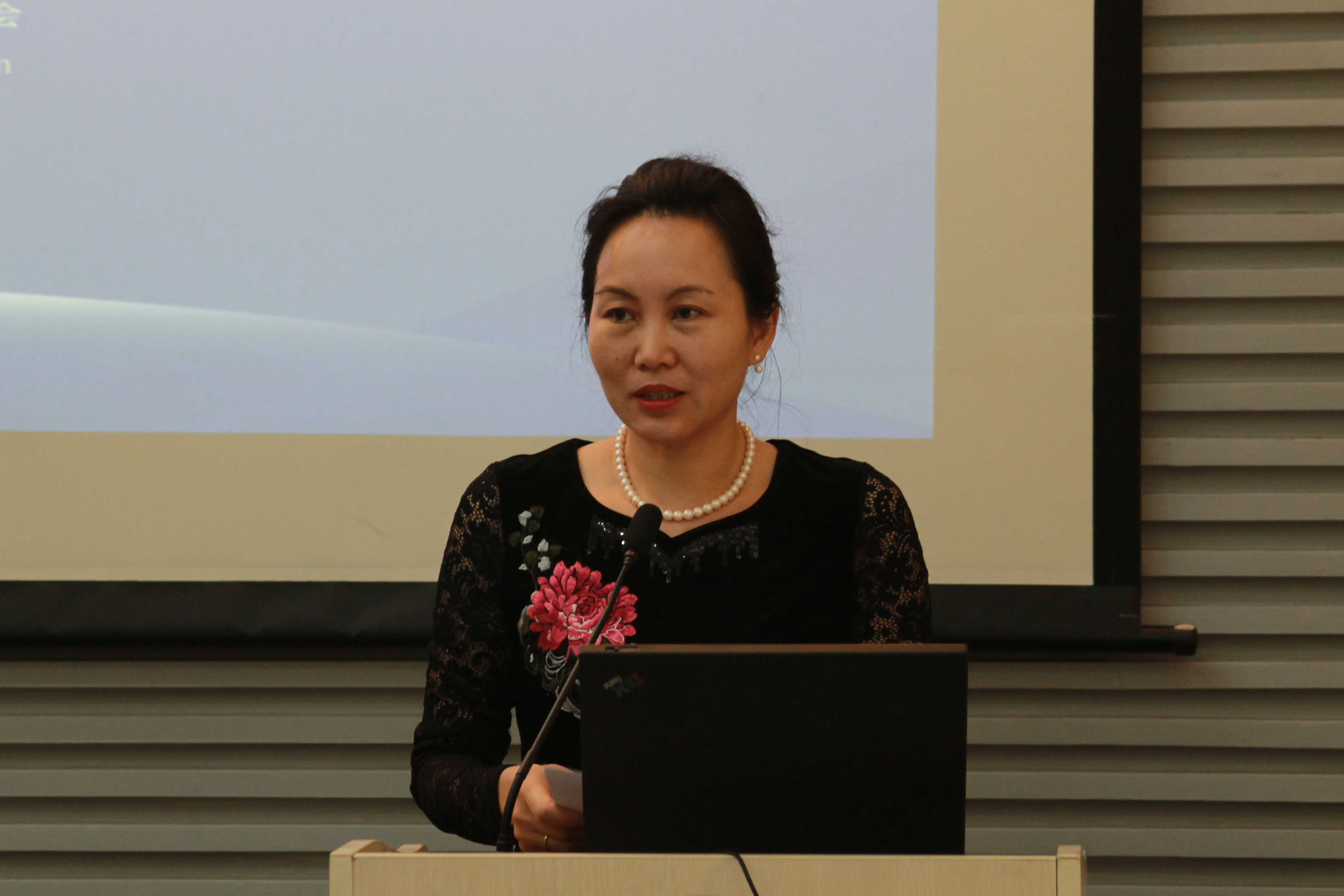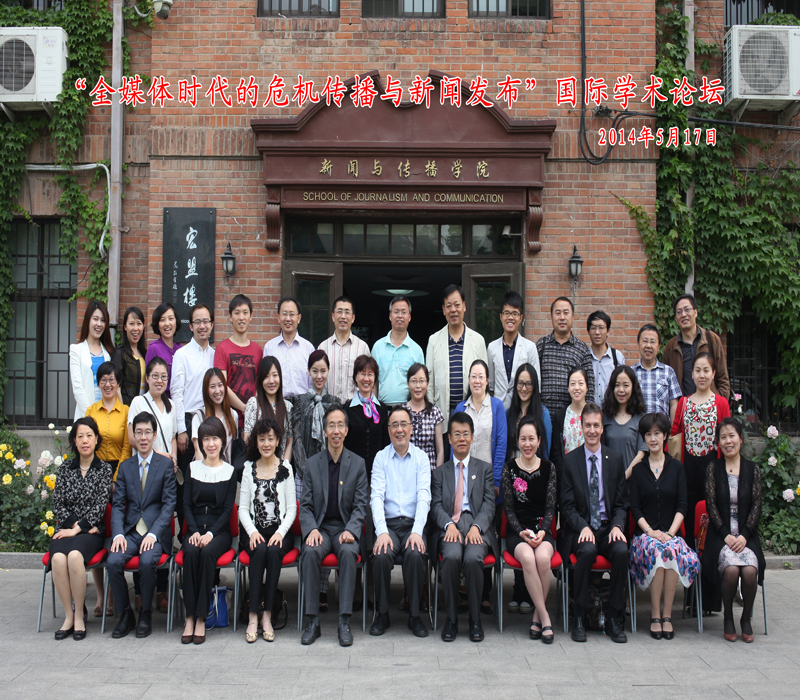BEIJING, MAY 17, 2014 - The International Symposium on Crisis Communication and Media Relation was held on Saturday at Tsinghua University. This symposium was organized by School of Journalism and Communication as well as Israel Epstein Center for Global Media and Communication at Tsinghua University, and was co-organized by Chinese Association of Global Communication, Professor Anbin SHI, the Associate Dean of Tsinghua School of Journalism and Communication (TSJC) and Executive Director of Israel Epstein Center for Global Media and Communication(CGMC), Professor W. Timothy Coombs from Nickerson School of Communication at University of Central Florida in the United States, Professor Yihui HUANG from School of Journalism and Communication at Chinese University of Hong Kong, as well as Yizhen WU, Dean of College of Communication at Fu Jen Catholic University, attended this symposium and made keynote speeches, with more than sixty other domestic scholars and graduates attending this symposium.
At the opening ceremony, Professor Weihe XIE, the vice president of Tsinghua University, Professor Jianbin JIN, Administrative Dean of TSJC, and Professor Changfeng CHEN, President of the Chinese Association for History of Journalism and Mass Communication each delivered a speech. Professor Qingan ZHOU, deputy director of Israel Epstein CGMC, as well as Professor Min HANG, Director of Global Business Journalism Program at TSJC hosted this symposium.

Weihe XIE pointed out that it was a worldwide issue as how to make citizens face social crisis with truly useful information under the background of Omni-Media Era. He hoped that this issue could be discussed in a deeper way during this symposium. He expressed his congrats to this conference and showed his expectations for the positive influence as well as advantageous contributions this conference would make to the society.
Jianbin JIN said that the government had been facing a great deal of challenges in ruling and governing the society nowadays, in which theories and strategies are urgently needed. He mentioned that Chinese scholars should take the responsibility to make more contributions to the practical change and governance of the society instead of sitting and prattling about the general principles.

Changfeng CHEN made a brief introduction of the Chinese Association of Global Communication, and pointed out the necessity and importance of the research on crisis communication and media relation during the Omni-Media Era. She lent full support to the relative research and discussion and wished the forum a great success.

Anbin SHI made a keynote speech with the title of Mapping Crisis Communication and Government Media Relation: A East-West Dialogic Perspective. He reviewed the history and status of research on crisis communication and government media relation. He thinks that the way of crisis communication and government media relation has transformed to multilateral interaction from single transmission, and has converted into public participation from dominance by the government. The Omni-Media Erahas become a platform on which traditional media and new media compete with each other for the attention of the audience.
Professor W. Timothy Coombs made a speech titled Looking Inside and Outside: Challenges of Corporate Crisis Communication in the Omni-Media Era. He came up with the Situational Crisis Communication Theory (SCCT), and divided the evaluation of crisis communication into three phases, which are crisis type, analysis of intensifiers and crisis response. Theoretically, he divided the crisis into different types and came up with corresponding crisis response strategies.
Professor Yihui HUANG made a speech titled Crisis communication in risk society: Challenge and Prospect. In her speech, professor HUANG came up with strategies of crisis communication and image restoration based on the specific character of Chinese society. She analyzed the influence on the crisis communication from the history relation of the organization, social media, adventurous society as well as lack of credibility. And she emphasized that credibility plays an important role in crisis communication.
Professor Yizhen WU made a speech on Theory and practice: some misunderstandings on crisis communication. Her speech mainly illustrated that how to put the theory of crisis communication into practice. She listed five misunderstandings on crisis prevention and management, issue management, crisis communication, crisis decision-making model, situational crisis communication. She pointed out that we should face up to the misunderstandings and pay more attention to the gap between theory and practice.
During the second session in the afternoon, four scholars each made a speech and Prof. SHI, Prof. WU and Prof. HUANG commented on each speech.

Firstly, Professor Feng XIAO from School of Arts and Media at China University of Geosciences (Wuhan) made a speech titled Chinese experience on crisis communication and media governance: ‘Kunming Turbulence’ from perspective of crisis communication. He reviewed the crisis events occurred in China in recent years and the response of Chinese government and media.
Professor Jing XU from Peking University made a speech titled The relation between responding government and media from perspective of adventurous communication. In her speech, she pointed out the difference and conflicts between scientists and media.
Professor Qingan ZHOU from Tsinghua University made a speech on The use of focus events theory on crisis of Chinese public security. He made a deep analysis on crisis of Chinese public security from the perspective of issues, and made a conclusion on how to realize the visibility of government media relation in four aspects: Live requirements, situation substitution, projection effect, and information leading forward.
Yuanhong DENG, Lecturer of School of Journalism and Communication at Hebei University made a speech on Analysis on characters and models of international crisis communication. He came up with some strategies to supervise the international crisis on a technical and practical perspective. (By Dier Wang)

